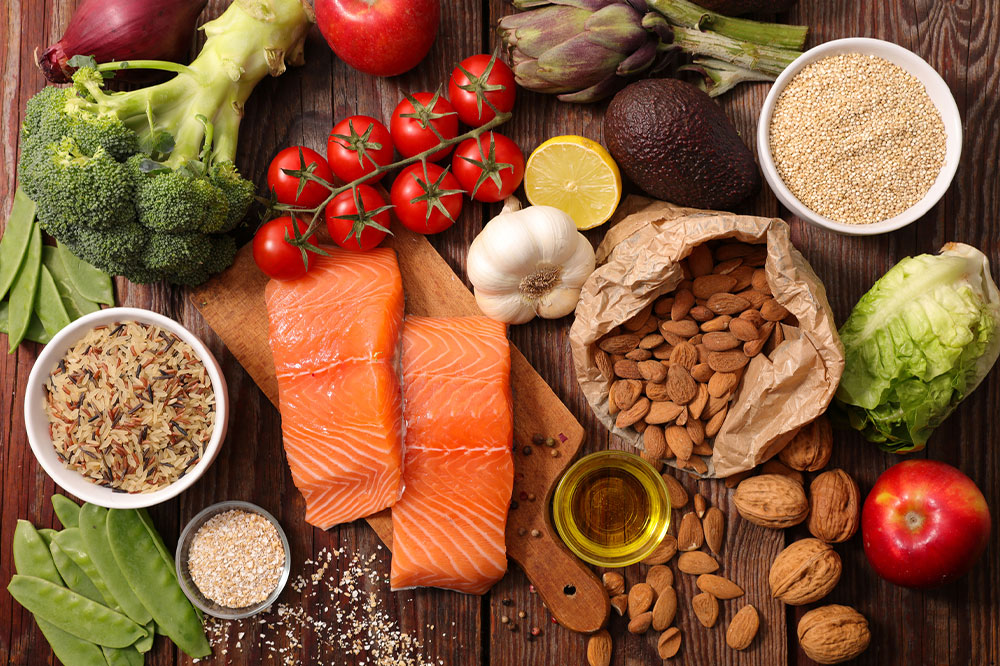Comprehensive Guide to Foods That Enhance Prostate Health and Prevent Diseases
This comprehensive article explores the top foods that support prostate health, including cruciferous vegetables, legumes, tomatoes, omega-3-rich fish, and green tea. It discusses their health benefits, ways to incorporate them into daily meals, and additional medical treatments and supplements. Emphasizing the importance of diet in prostate disease prevention, the guide provides practical tips to promote long-term prostate health and reduce the risk of conditions like prostate cancer and hyperplasia.

Comprehensive Guide to Foods That Enhance Prostate Health and Prevent Diseases
The prostate gland, a small yet vital organ in the male reproductive system, plays a crucial role in producing seminal fluid, which nourishes and transports sperm during ejaculation. Situated just beneath the bladder and encircling the urethra, this walnut-sized gland is prone to various health issues, especially as men age. Conditions such as benign prostatic hyperplasia (BPH), prostatitis, and prostate cancer are common concerns that can significantly impact quality of life. While conventional treatments like medications and surgical procedures are often utilized, emerging evidence underscores the importance of diet and lifestyle choices in maintaining prostate health and potentially reducing the risk of serious prostate diseases.
Understanding which foods support a healthy prostate can empower men to make informed dietary decisions that promote longevity and vitality. This comprehensive guide explores the top foods with proven benefits for prostate health, explains their mechanisms of action, and offers practical tips on incorporating them into daily meals.
Cruciferous Vegetables: Nature’s Cancer Fighters
Cruciferous vegetables, including broccoli, cabbage, kale, cauliflower, and Brussels sprouts, are rich sources of phytochemicals such as sulforaphane and indole-3-carbinol. Scientific studies have shown that compounds like sulforaphane can induce detoxification enzymes, reduce oxidative stress, and inhibit the proliferation of cancer cells. These vegetables contain compounds that may selectively target harmful cells while preserving healthy tissues, making them vital components of a prostate-friendly diet.
Incorporating cruciferous vegetables into your meals can be easy and delicious. Add chopped broccoli or cauliflower to stir-fries, toss kale into salads, or enjoy raw Brussels sprouts as a snack. Cooking methods such as steaming or lightly sautéing help retain the beneficial nutrients. Regular consumption of these vegetables has been associated with a lower incidence of prostate cancer and other prostate-related problems, making them a cornerstone of preventative nutrition.
Adding broccoli, cabbage, or kale to your weekly menu can be simple and versatile. Use them in soups, salads, stir-fries, or as raw snacks. The consistent inclusion of cruciferous vegetables in your diet can provide ongoing protection against prostate issues.
Legumes and Pulses: Natural Phytoestrogen Sources
Legumes, which include beans, lentils, chickpeas, and peanuts, are abundant in plant-based compounds called phytoestrogens. These compounds mimic estrogen in the body and have been linked to a decreased risk of prostate cancer—by as much as 20%—by influencing hormone regulation and cellular growth pathways. Substituting red meat with legumes not only benefits prostate health but also improves cardiovascular health due to their high fiber, protein, and antioxidant contents.
Create satisfying meals with bean-based dishes like hummus, lentil soups, or veggie-packed bean burgers. These options are flavorful, nutritious, and easy to prepare, making them excellent choices for promoting prostate well-being over the long term. Incorporating legumes regularly into your diet adds a strategic layer of protection against prostate diseases, leveraging nature’s own medicinal properties.
Tomatoes and Lycopene: Powerful Anti-Cancer Agents
Tomatoes are a superb source of lycopene, a carotenoid pigment with potent antioxidant properties. Lycopene has been extensively studied for its role in slowing the progression of prostate cancer by scavenging free radicals, reducing oxidative DNA damage, and inhibiting tumor cell growth. Cooking tomatoes or consuming sun-dried varieties enhances lycopene bioavailability; heat processing breaks down cell walls, making this nutrient more accessible for absorption.
Enjoy sliced tomatoes in salads, scramble them into eggs, or sip tomato juice for a simple, tasty way to boost your intake. Incorporating more tomatoes into your diet can significantly improve your prostate health prospects by leveraging lycopene’s protective effects against cancerous changes.
Fatty Fish Rich in Omega-3 Fatty Acids
Omega-3 fatty acids, especially EPA and DHA, found abundantly in fatty fish like salmon, sardines, mackerel, herring, and trout, have anti-inflammatory properties that are beneficial for prostate health. Research indicates that omega-3s may reduce the risk of aggressive prostate cancers and improve survival and quality of life for those diagnosed. Including fish in your weekly diet can help balance inflammatory processes and support overall prostate function.
Prepare grilled, baked, or poached fish, add sardines to salads, or serve mackerel with whole-grain pasta for a nutritious and prostate-supportive meal. Consistent consumption of omega-3-rich fish is a natural, delicious strategy to bolster your defenses against prostate ailments.
Green Tea: A Natural Prostate Protector
Green tea contains bioactive compounds such as epigallocatechin gallate (EGCG) and epicatechin, which have been shown to inhibit tumor growth, induce apoptosis in cancer cells, and regulate hormone activity in the prostate. Regular green tea intake has been linked to a reduced risk of developing prostate cancer and improving outcomes in those already diagnosed.
Start your day with a warm cup of green tea, or replace sugary beverages with its aromatic, health-promoting variety. Its antioxidants help combat oxidative stress, a major factor in cancer development, and provide a calming, healthful addition to your daily routine.
Complementary Treatments and Supplements
Beyond diet, medical treatments such as prescription medications are available for prostate cancer. One such medication, XTANDI (enzalutamide), is prescribed for advanced prostate cancer and works by blocking androgen receptors, thus inhibiting tumor growth. Patients with health insurance can often access savings programs, while uninsured individuals might qualify for assistance plans that help reduce medication costs.
Supplements designed to support prostate health, including VitalFlow and Prostafen, are gaining popularity. VitalFlow is formulated with antioxidants aimed at reducing prostate size, alleviating symptoms of benign prostatic hyperplasia (BPH), and restoring libido. Prostafen contains organic ingredients such as saw palmetto, pumpkin seed extracts, and beta-sitosterol, which are traditionally used to promote prostate health without significant side effects. However, it is crucial to consult your healthcare provider before initiating any supplement regimen to ensure safety and suitability.
For individuals with advanced prostate cancer, innovative treatments like Xofigo® (radium Ra 223 dichloride) offer targeted therapy. This radioactive injection specifically targets bone metastases, which are common in advanced stages, and helps reduce tumor burden. The standard protocol involves administering one dose every four weeks over a course of six injections, significantly improving the quality of life for many patients when used appropriately.
In conclusion, adopting a prostate-healthy diet rich in cruciferous vegetables, legumes, tomatoes, omega-3-rich fish, and green tea can be a powerful strategy for disease prevention. When combined with medical treatments and supportive supplements, these dietary choices can help maintain prostate health, delay or prevent the onset of serious conditions, and enhance overall well-being. Regular checkups and consultation with healthcare professionals are essential in crafting a personalized plan that effectively meets individual health needs.





